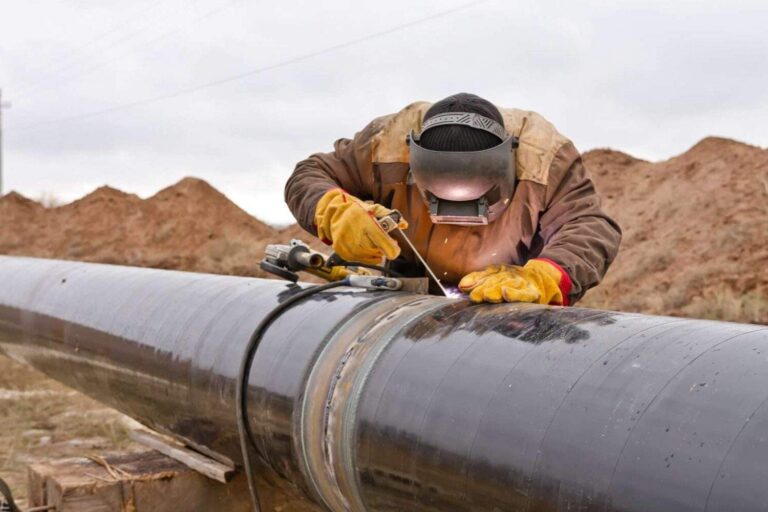The United States has shown growing interest in investing in Africa’s most ambitious gas infrastructure project—the Nigeria-Morocco Gas Pipeline, a 5,660-kilometer mega-pipeline designed to connect West Africa’s natural gas reserves to Europe.
This development was disclosed by Nigeria’s Finance Minister, Wale Edun, during the 2025 Spring Meetings of the IMF and World Bank Group held in Washington, D.C. Minister Edun noted that the U.S. expressed its intent during high-level meetings with Nigeria’s Central Bank Governor Olayemi Cardoso and officials from the U.S. State Department.
“The U.S. sees strong investment potential in Nigeria’s natural gas sector, especially in the Nigeria-Morocco Gas Pipeline project, given our vast gas reserves,” Edun said.
The meetings also emphasized the importance of Nigeria showcasing its ongoing economic reforms to bolster international investor confidence.
A $25 Billion Vision Linking Africa to Europe
First proposed in 2016 during King Mohammed VI’s visit to Nigeria, the Nigeria-Morocco Gas Pipeline is one of Africa’s most strategic infrastructure undertakings. With an estimated cost of $25 billion, the project will traverse 13 African countries, ultimately supplying gas to Europe via Morocco.
When completed, it will become the longest offshore gas pipeline in the world, enhancing energy security for West African nations and members of the Alliance of Sahel States (AES). The project is also seen as a significant boost to regional economic integration and cross-border energy trade.
Construction agreements have already been signed between NNPC Ltd (Nigeria) and ONHYM (Morocco), with backing from organizations like ECOWAS, Tanzania’s SMH, and Senegal’s Petrosen.
A Strategic Battleground: U.S. vs. China in Africa
The U.S. interest in the pipeline comes amid intensifying geopolitical competition in Africa, particularly between Washington and Beijing. China has steadily expanded its presence through massive investments in infrastructure, mining, and energy—with the Nigeria-Morocco pipeline being no exception.
Earlier this year, the project secured a major boost from Jingye Group, a leading Chinese steel manufacturer. Its UK subsidiary, Jingye British Steel, has committed to supplying high-quality steel components essential for the pipeline’s construction.
Analysts suggest that U.S. participation may not be purely economic but also geopolitical—a move to counterbalance China’s growing influence across the African continent. While the U.S. has historically played a supportive role in African development, its renewed focus on energy infrastructure signals a broader intent to remain relevant in Africa’s evolving economic landscape.
“Strategic investments like this help the U.S. maintain its presence in Africa’s development story, especially in sectors where China is gaining momentum,” said an energy analyst familiar with the project.
A Turning Point for Africa’s Energy Future
As global demand for cleaner energy sources grows, Africa’s natural gas reserves are drawing renewed international attention. The Nigeria-Morocco pipeline is poised to become a critical energy corridor, potentially reshaping how African gas reaches global markets.
If the U.S. proceeds with its investment, it could mark a turning point in transatlantic cooperation on African energy and infrastructure development, while also reinforcing Nigeria’s position as a key regional energy hub.

